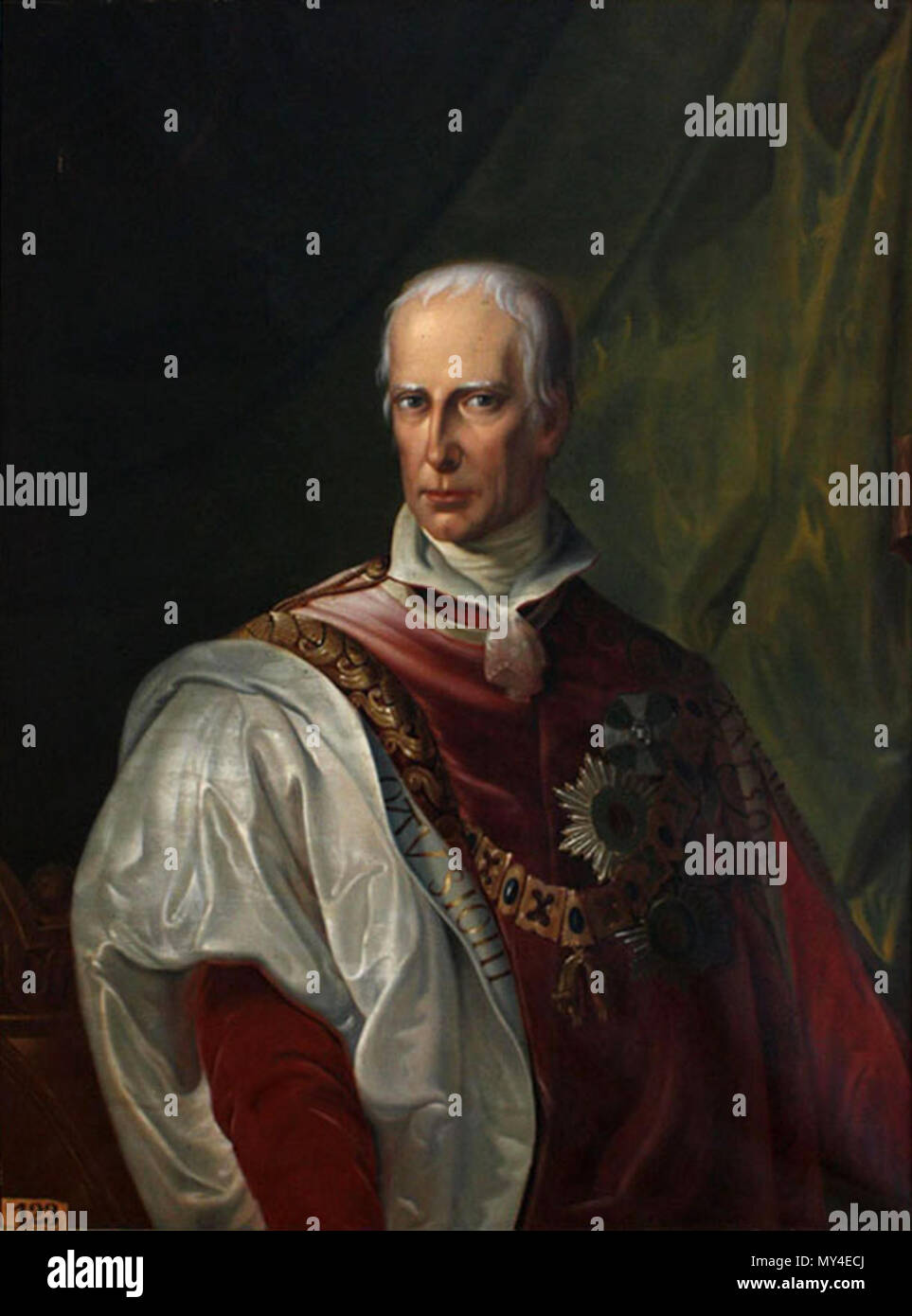
. English Francis II, Holy Roman Emperor . 7 January 2010. Tobias Grießer 160 Emperor Francis
The last Holy Roman emperor was Francis II, who dissolved the Holy Roman Empire in 1806 during the Napoleonic Wars. Origin of the title The Western Roman Empire disintegrated in the 5th and 6th centuries, leaving the Eastern Roman Empire, later called the Byzantine Empire, as the only successor state to the Roman Empire.
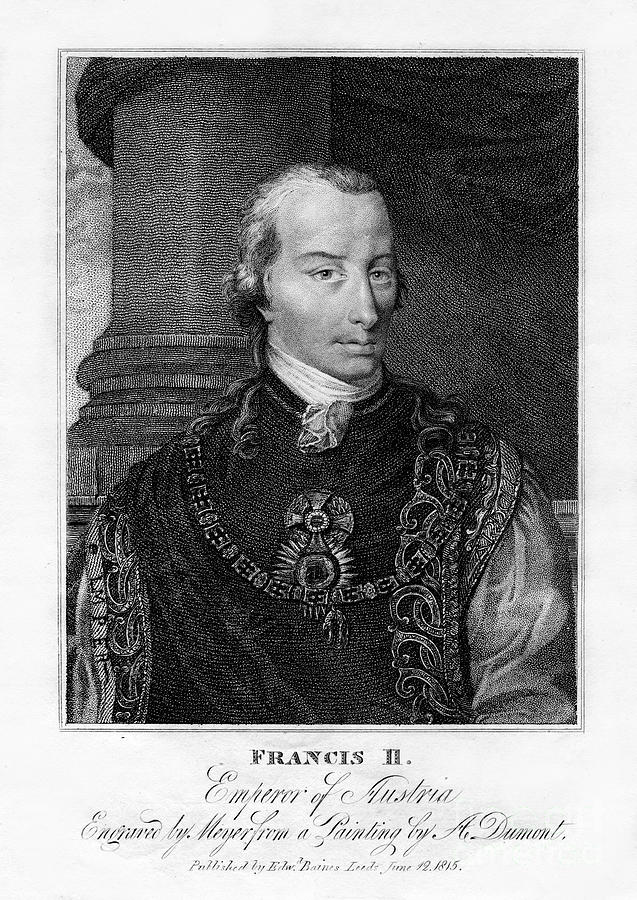
Francis II, Holy Roman Emperor Drawing by Print Collector Fine Art America
English: Francis II., Holy Roman Emperor = Francis I., Emperor of Austria. Latina: Franciscus II, Imperator Romanus Sacer = Franciscus I, Imperator Austriae. Francis II, Holy Roman Emperor also known as Francis I, Emperor of Austria (1768-1835) L'emperador Francesc I d'Àustria, per Friedrich von Amerling (1832), conservat al Museu d'Història.
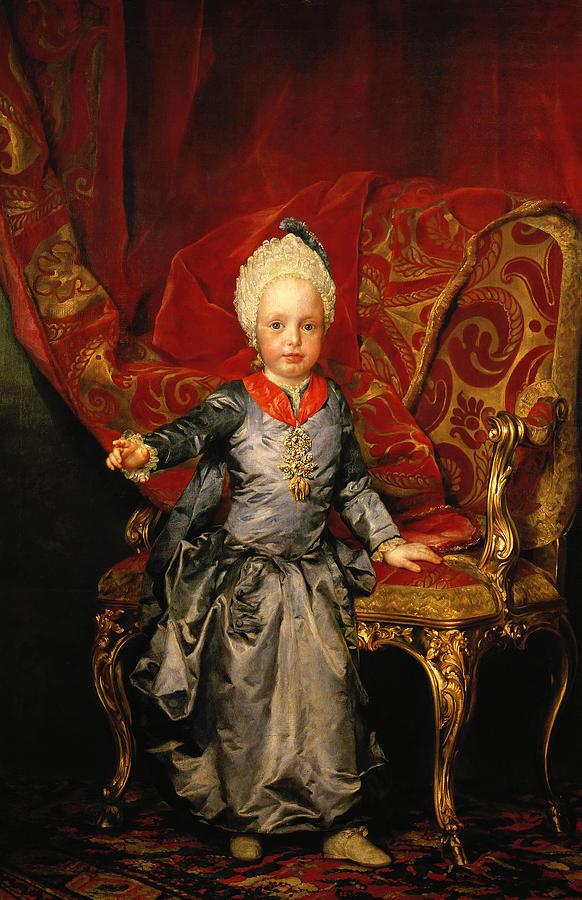
Anton Rafael Mengs / 'Francis II, Holy Roman Emperor', 1770, Oil on canvas, 144 x 97 cm, P02191
The Holy Roman Emperor title provided the highest prestige among medieval Roman Catholic monarchs, because the empire was considered by the Roman Catholic Church to be the only successor of the Roman Empire during the Middle Ages and the early modern period.

Archduke Franz Joseph Karl (1770) Francis II, Holy Roman Emperor Wikipedia, the free
Francis II and I ( German: Franz II.; 12 February 1768 - 2 March 1835) was the last Holy Roman Emperor as Francis II from 1792 to 1806, and the first Emperor of Austria as Francis I from 1804 to 1835. He was also King of Hungary, Croatia and Bohemia, and served as the first president of the German Confederation following its establishment in 1815.

Francis II, Holy Roman Emperor Alchetron, the free social encyclopedia
The Holy Roman Empire had survived over a thousand years when it was finally destroyed by Napoleon and the French in 1806. Richard Cavendish | Published in History Today Volume 56 Issue 7 July 2006. Francis II in his coronation robes, by Leopold Kupelwieser. It may not have been holy or Roman or an empire, as Voltaire remarked, but whatever it.
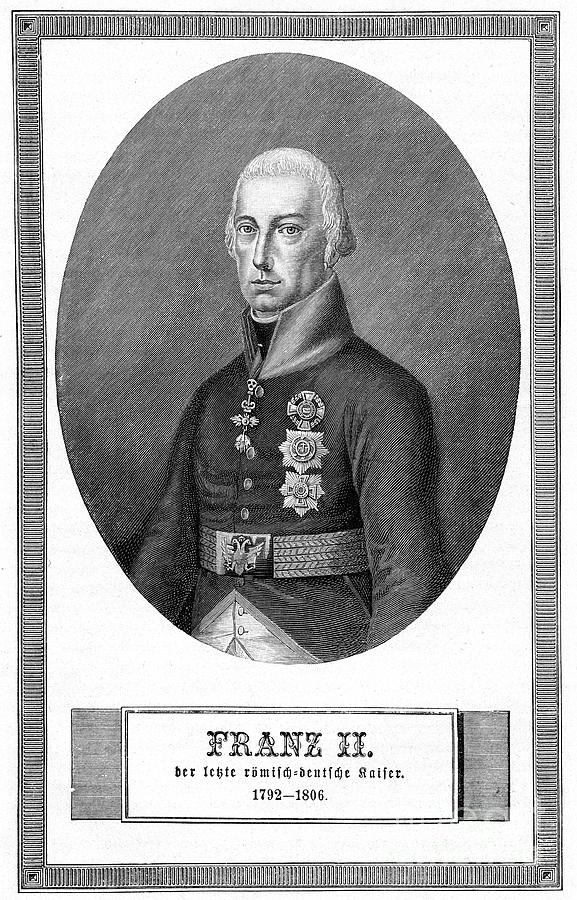
Francis II, Holy Roman Emperor, 1900 by Print Collector
The dissolution of the Holy Roman Empire occurred de facto on 6 August 1806, when the last Holy Roman Emperor, Francis II of the House of Habsburg-Lorraine, abdicated his title and released all Imperial states and officials from their oaths and obligations to the empire.
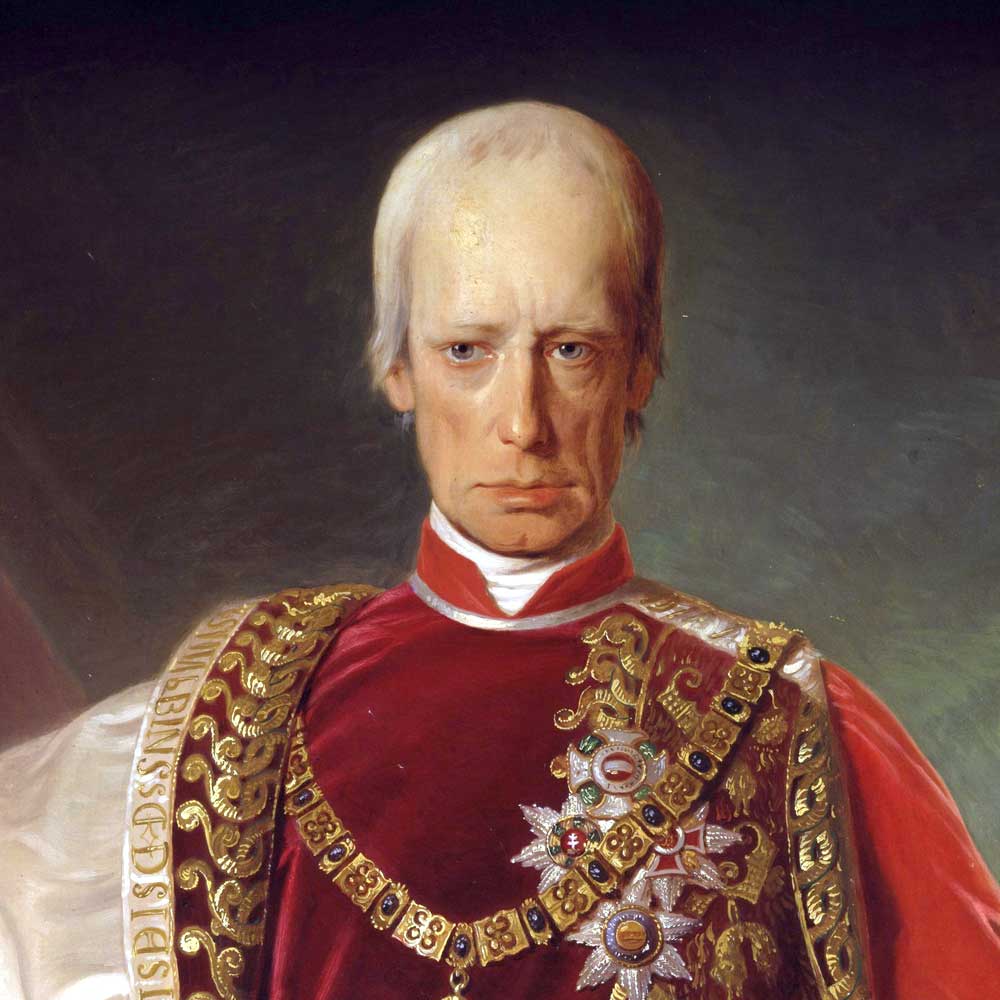
Today in History 6 August 1806 Francis II Dissolves the Holy Roman Empire, Making him the Last
Holy Roman Emperor Francis II - 1792-1806. Francis II (German: Franz II., Erwählter Römischer Kaiser) (12 February 1768 - 2 March 1835) was the Holy Roman Emperor, ruling from 1792 until 6 August 1806, when he dissolved the Holy Roman Empire after the disastrous defeat of the Third Coalition by Napoleon at the Battle of Austerlitz.
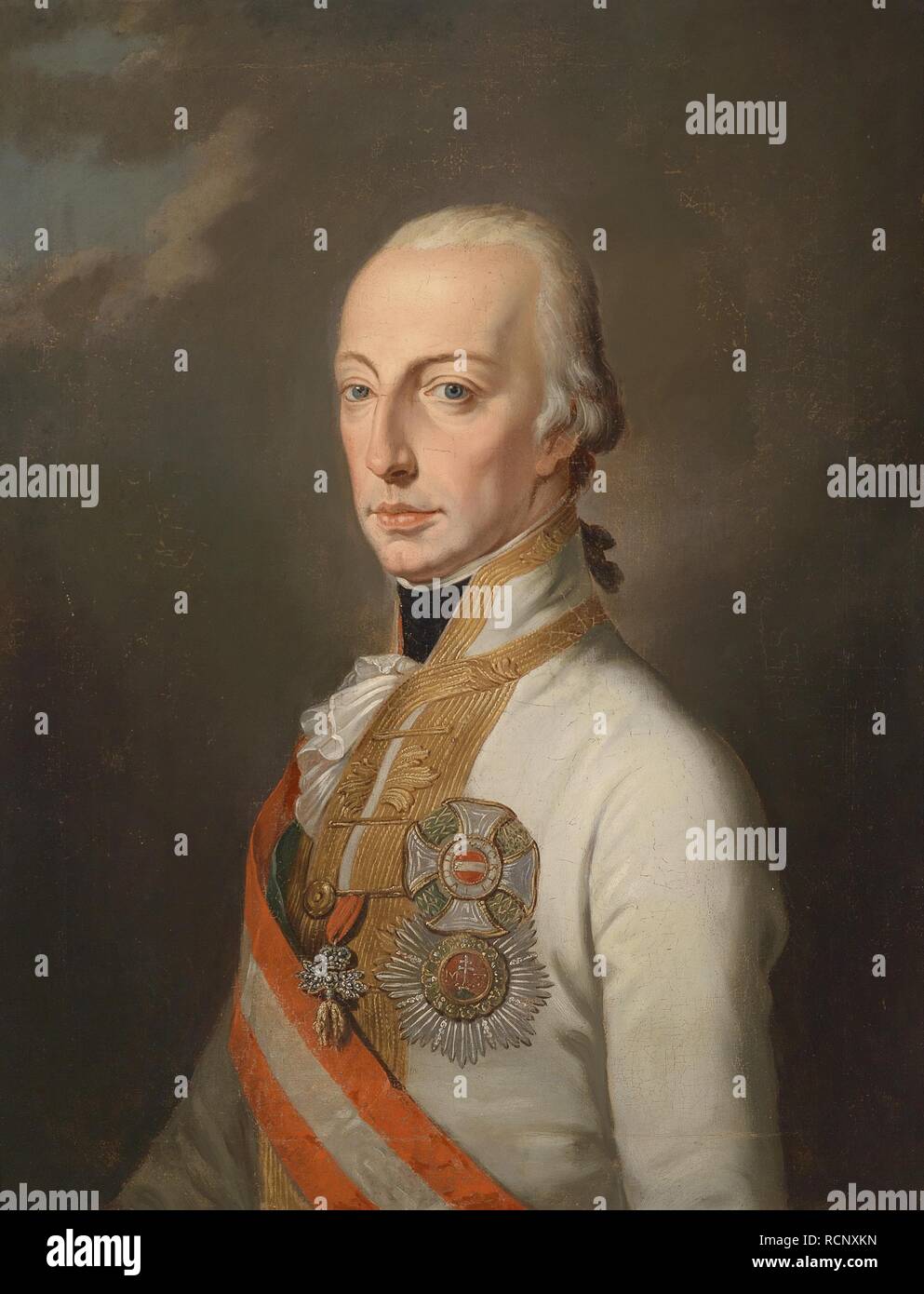
Portrait of Holy Roman Emperor Francis II (17681835). Museum PRIVATE COLLECTION. Author
Francis II, (born February 12, 1768, Florence—died March 2, 1835, Vienna), the last Holy Roman emperor (1792-1806) and, as Francis I, emperor of Austria (1804-35); he was also, as Francis, king of Hungary (1792-1830) and king of Bohemia (1792-1836).

The Imperial Treasury of Vienna Daydream Tourist
Francis I (born Dec. 8, 1708, Nancy, Duchy of Lorraine—died Aug. 18, 1765, Innsbruck, Austria) Holy Roman emperor from Sept. 13, 1745; he was duke of Lorraine (as Francis Stephen) from 1729 to 1735 and grand duke of Tuscany from 1737.

FileFrancis II, Holy Roman Emperor by Johann Baptist Lampi.jpg Wikimedia Commons
Francis II, Holy Roman Emperor, arrived to take personal command at the request of his younger brother, Archduke Charles. This was done both to inspire the troops and to reassert the dominance of Austria among the nations of the Coalition, which were distrustful of one another. When the emperor arrived, the army consisted of some 130,000 battle.

Portrait of Francis II (17681835), Holy Roman Emperor, standing fulllength, in a herminlined
The former Holy Roman Emperor Francis II became the Emperor of Austria. In accordance with tradition and the titles that were already held, he promulgated the grand title to codify the most important monarchical titles of various countries and territories under Habsburg rule, and also of titular rulers of former possessions.
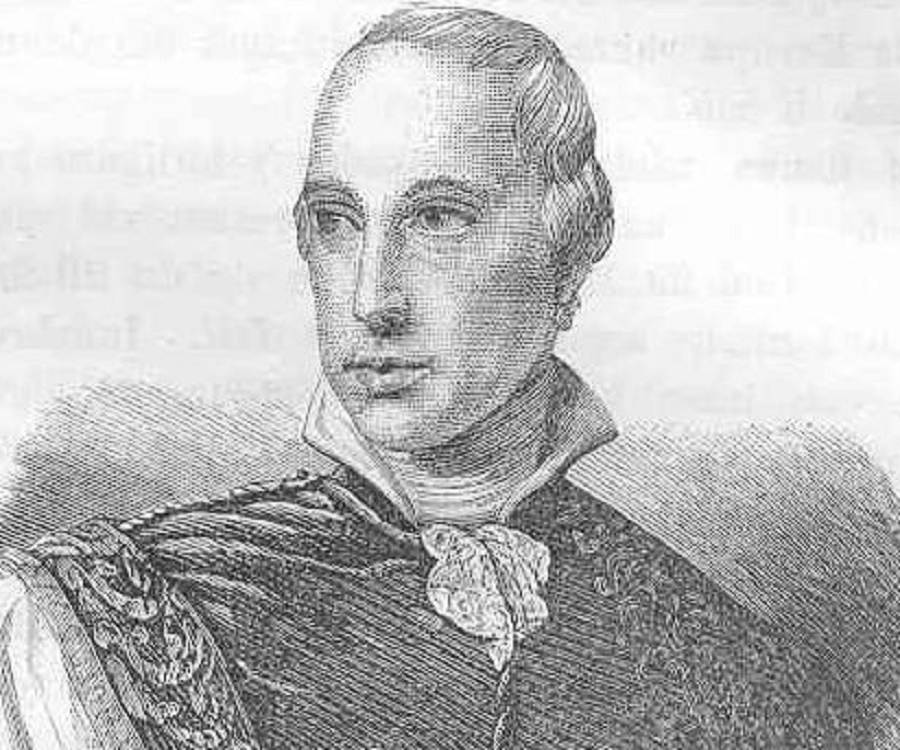
Francis II, Holy Roman Emperor Biography Facts, Childhood, Family Life & Achievements
Francis II and I ( German: Franz II.; 12 February 1768 - 2 March 1835) was the last Holy Roman Emperor as Francis II from 1792 to 1806, and the first Emperor of Austria as Francis I from 1804 to 1835. He was also King of Hungary, Croatia and Bohemia, and served as the first president of the German Confederation following its establishment in 1815.
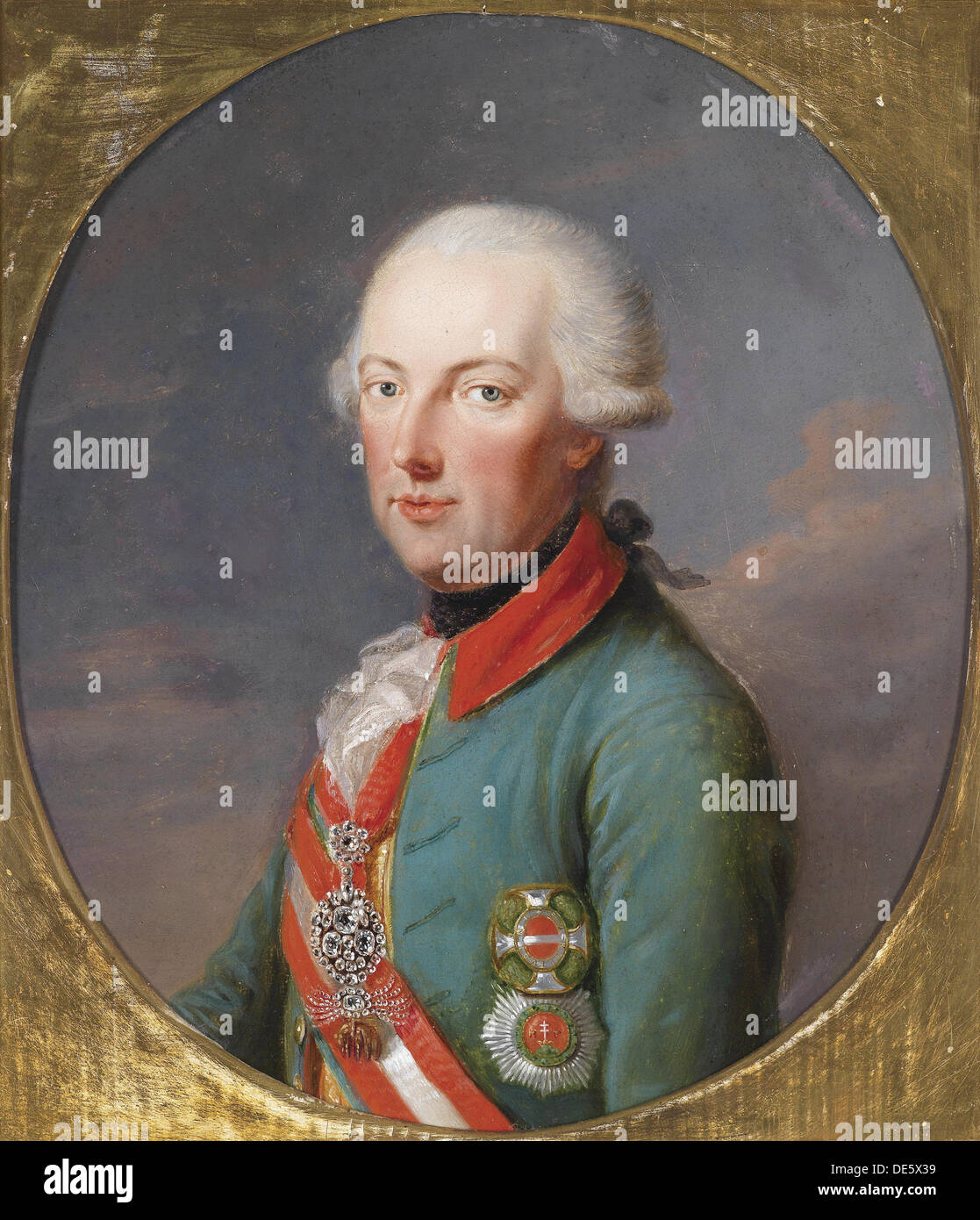
Portrait of Holy Roman Emperor Francis II (17681835). Artist Hickel, Josef (1736 1807 Stock
Francis II, 1768-1835, last Holy Roman emperor (1792-1806), first emperor of Austria as Francis I (1804-35), king of Bohemia and of Hungary (1792-1835). He succeeded his father, Leopold II, shortly before the outbreak of war with France (see French Revolutionary Wars ).
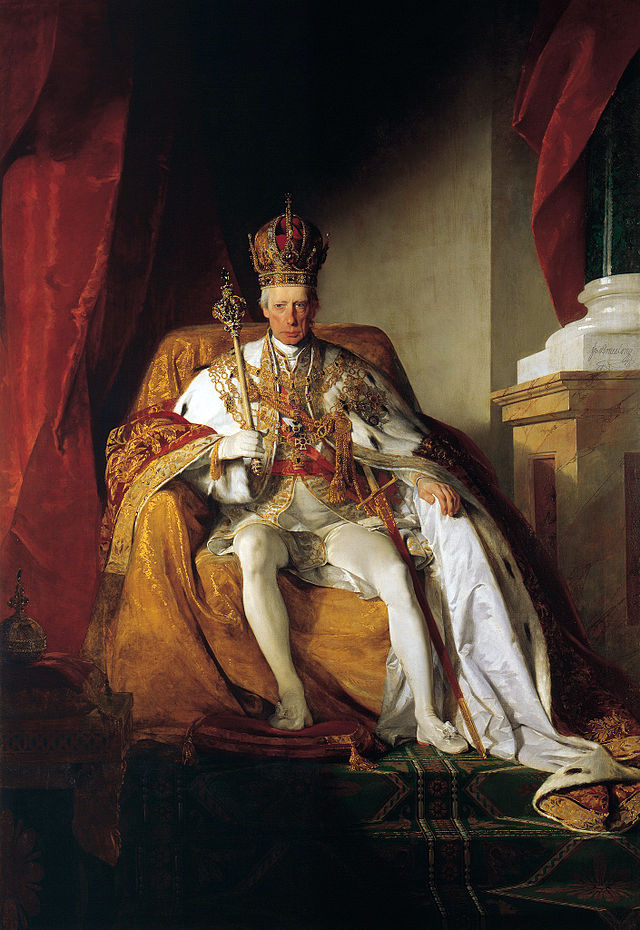
Francis_II,_Holy_Roman_Emperor_by_Friedrich_von_Amerling_003 (1) JeanMarie
The Holy Roman Empire was the varying complex of lands in western and central Europe ruled over first by Frankish and then by German kings for 10 centuries (800-1806). Learn more about the origins, history, and significance of the Holy Roman Empire in this article.. The empire came to an end in 1806, when Francis II abdicated his title as.

Pin on Monarcas
History German History: Biographies Francis II (Holy Roman Empire) Francis II (Holy Roman Empire) (1768-1835; Ruled 1792-1806) views 2,159,240 updated May 23 2018 FRANCIS II ( HOLY ROMAN EMPIRE) (1768 - 1835; ruled 1792 - 1806) FRANCIS II (HOLY ROMAN EMPIRE) (1768 - 1835; ruled 1792 - 1806).
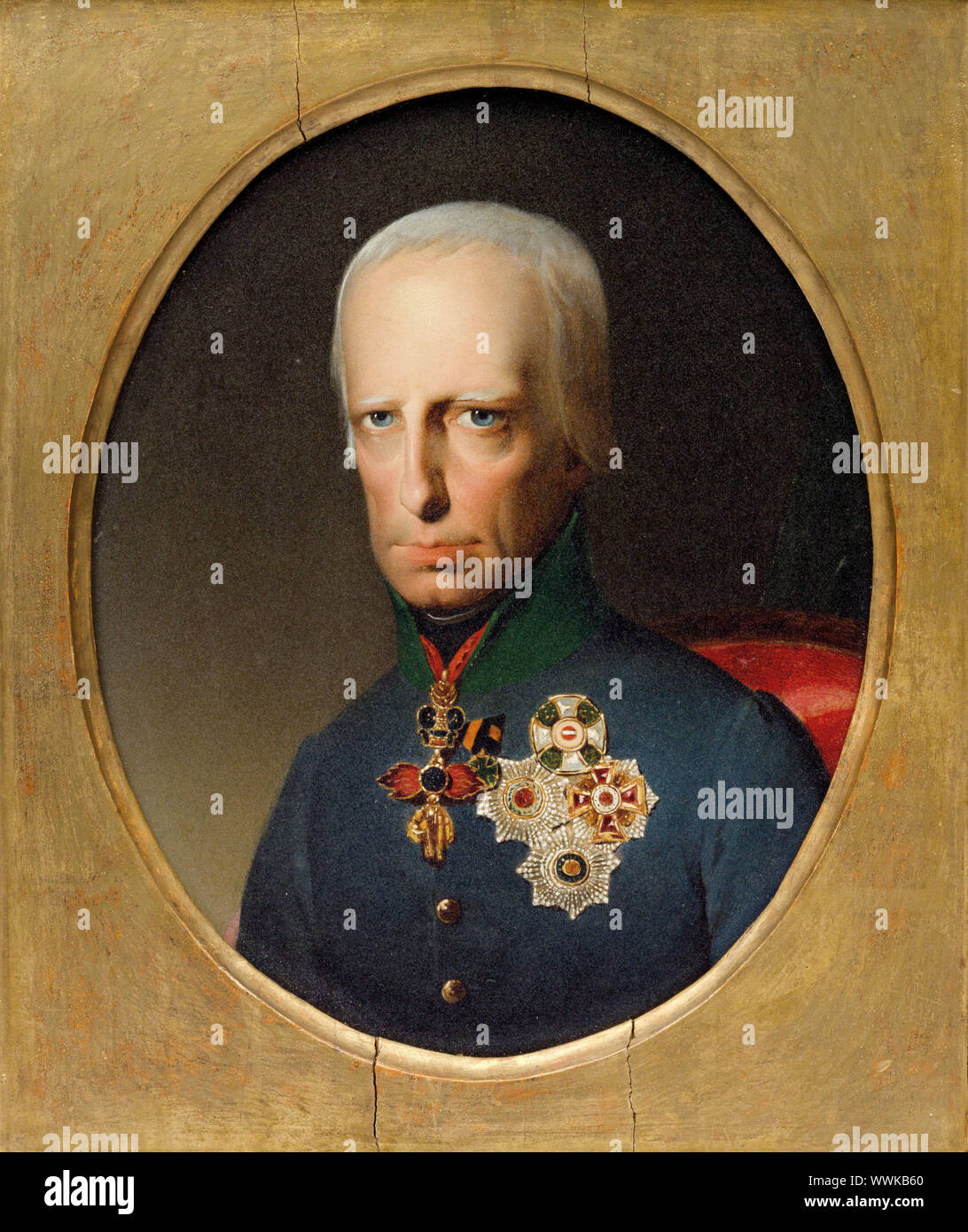
Portrait of Holy Roman Emperor Francis II (17681835), c. 1830. Private Collection Stock Photo
Francis I (Francis Stephen; French: François Étienne; German: Franz Stefan; Italian: Francesco Stefano; 8 December 1708 - 18 August 1765) [1] was Holy Roman Emperor, Archduke of Austria, Duke of Lorraine and Bar, and Grand Duke of Tuscany.